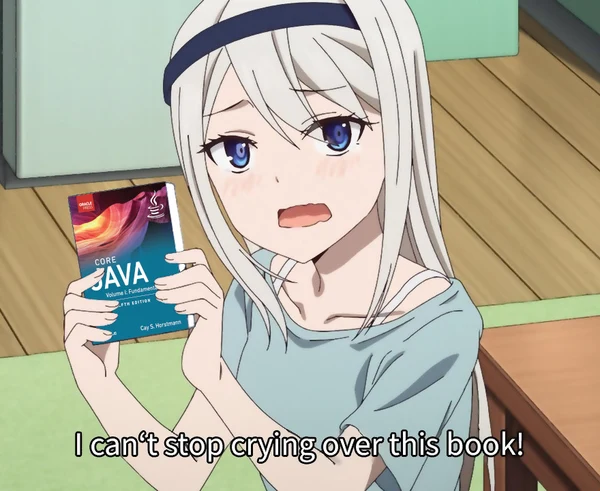Top Poster of the Day:

 Thirtythirst4sissies
Thirtythirst4sissies


Current Registered Users: 28,720

tech/science swag. 
Guidelines:
What to Submit
On-Topic: Anything that good slackers would find interesting. That includes more than /g/ memes and slacking off. If you had to reduce it to a sentence, the answer might be: anything that gratifies one's intellectual laziness.
Off-Topic: Most stories about politics, or crime, or sports, unless they're evidence of some interesting new phenomenon. Videos of pratfalls or disasters, or cute animal pictures. If they'd cover it on TV news, it's probably lame.
Help keep this hole healthy by keeping drama and NOT drama balanced. If you see too much drama, post something that isn't dramatic. If there isn't enough drama and this hole has become too boring, POST DRAMA!
In Submissions
Please do things to make titles stand out, like using uppercase or exclamation points, or saying how great an article is. It should be explicit in submitting something that you think it's important.
Please don't submit the original source. If the article is behind a paywall, just post the text. If a video is behind a paywall, post a magnet link. Fuck journos.
Please don't ruin the hole with chudposts. It isn't funny and doesn't belong here. THEY WILL BE MOVED TO /H/CHUDRAMA
If the title includes the name of the site, please leave that in, because our users are too stupid to know the difference between a url and a search query.
If you submit a video or pdf, please don't warn us by appending [video] or [pdf] to the title. That would be r-slurred. We're not using text-based browsers. We know what videos and pdfs are.
Make sure the title contains a gratuitous number or number + adjective. Good clickbait titles are like "Top 10 Ways to do X" or "Don't do these 4 things if you want X"
Otherwise editorialize. Please don't use the original title, unless it is gay or r-slurred, or you're shits all fucked up.
If you're going to post old news (at least 1 year old), please flair it so we can mock you for living under a rock, or don't and we'll mock you anyway.
Please don't post on SN to ask or tell us something. Send it to [email protected] instead.
If your post doesn't get enough traction, try to delete and repost it.
Please don't use SN primarily for promotion. It's ok to post your own stuff occasionally, but the primary use of the site should be for curiosity. If you want to astroturf or advertise, post on news.ycombinator.com instead.
Please solicit upvotes, comments, and submissions. Users are stupid and need to reminded to vote and interact. Thanks for the gold, kind stranger, upvotes to the left.
In Comments
Be snarky. Don't be kind. Have fun banter; don't be a dork. Please don't use big words like "fulminate". Please sneed at the rest of the community.
Comments should get more enlightened and centrist, not less, as a topic gets more divisive.
If disagreeing, please reply to the argument and call them names. "1 + 1 is 2, not 3" can be improved to "1 + 1 is 3, not 2, mathfaggot"
Please respond to the weakest plausible strawman of what someone says, not a stronger one that's harder to make fun of. Assume that they are bad faith actors.
Eschew jailbait. Paedophiles will be thrown in a wood chipper, as pertained by sitewide rules.
Please post shallow dismissals, especially of other people's work. All press is good press.
Please use Slacker News for political or ideological battle. It tramples weak ideologies.
Please comment on whether someone read an article. If you don't read the article, you are a cute twink.
Please pick the most provocative thing in an article or post to complain about in the thread. Don't nitpick stupid crap.
Please don't be an unfunny chud. Nobody cares about your opinion of X Unrelated Topic in Y Unrelated Thread. If you're the type of loser that belongs on /h/chudrama, we may exile you.
Sockpuppet accounts are encouraged, but please don't farm dramakarma.
Please use uppercase for emphasis.
Please post deranged conspiracy theories about astroturfing, shilling, bots, brigading, foreign agents and the like. It degrades discussion and is usually mistaken. If you're worried about abuse, email [email protected] and dang will add you to their spam list.
Please don't complain that a submission is inappropriate. If a story is spam or off-topic, report it and our moderators will probably do nothing about it. Feed egregious comments by replying instead of flagging them like a pussy. Remember: If you flag, you're a cute twink.
Please don't complain about tangential annoyances—things like article or website formats, name collisions, or back-button breakage. That's too boring, even for HN users.
Please seethe about how your posts don't get enough upvotes.
Please don't post comments saying that rdrama is turning into ruqqus. It's a nazi dogwhistle, as old as the hills.
Miscellaneous:
The quality of posts is extremely important to this community. Contributors are encouraged to provide high-quality or funny effortposts and informative or entertaining comments. Please refrain from posting the following:
Boring wingcucked nonsense nobody cares about that belongs in chudrama
Normie shit everyone already knows about
Anything that doesn't gratifify one's intellectual laziness
Bimothy-tier posts
Anything that the jannies don't like
We reserve the right to exile you for whatever reason we want, even for no reason at all! We also reserve the right to change the guidelines at any time, so be sure to read them at least once a month. We also reserve the right to ignore enforcement of the guidelines at the discretion of the janitorial staff. This hole is a janny playground, participation implies enthusiastic consent to being janny abused by unstable alcoholic bullies and loser nerds who have nothing better to do than banning you for any reason or no reason whatsoever.
[[[ To any NSA and FBI agents reading my email: please consider ]]]
[[[ whether defending the US Constitution against all enemies, ]]]
[[[ foreign or domestic, requires you to follow Snowden's example. ]]]
/h/slackernews SETTINGS /h/slackernews LOG /h/slackernews MODS /h/slackernews EXILEES /h/slackernews FOLLOWERS /h/slackernews BLOCKERS










Jump in the discussion.
No email address required.
Two obvious possibilities (among a space of many, many others):
#1: We picked all the low-hanging fruit
#2: or, We broke institutional science so badly that we just legitimately got worse at doing science, despite the rapidly-growing population of putative "scientists."
Jump in the discussion.
No email address required.
Srsposting longpoast, sorry. I have Opinions on this.
It's a problem in a lot of fields, even the hard sciences. Not necessarily because of goofy niches per se—I wouldn't necessarily mind truly useless work, because that's merely a waste of money. Rather, the freakishly high volume of papers lowers the signal-to-noise ratio to the point that most papers are net-negative because their existence makes important work harder to find.
However, I'd argue this is just one facet of a bigger issue: the professionalization of science and its consequences. It's a human activity almost defined by its incredibly high demand for creativity and raw intelligence. Trying to scale something like that out by adding more bodies is always going to be limited foremost by what miniscule share of the population has the right mental qualities for it.
Now imagine we're in an era where universities care more about agreeableness (historical geniuses tend to be kind of buttholes) and diversity—the best scientists in history were Ashkenazi Jewish males, followed by west Euro males, and this is probably because they are legitimately better, not because discrimination. We tell ourselves that "everyone can do science", so it's okay that we run off those cis het white buttholes—they're supposedly replacable. But I could easily argue the top 0.1% of scientists do 99% of the groundbreaking work, and everyone in the field who is honest with himself knows who those 0.1% are in advance. Good luck if we don't hire them because we need to "be more inclusive."
Further, there are a number of adjacent issues: 1) The idea that science ought to be salaried leads to demand for more frequent results/papers. However, what if important work requires eureka moments with years in between? I wouldn't want to give present-day 'researchers' that leeway with our tax dollars, but real scientists need it. 2) Demands to do work other than research. Again, I don't mind making the current people earn their pay, but it'd be a waste of a genius. Which the geniuses know, so they don't go into academic science. 3) American students avoid grad school because industry pays much better and has better career prospects, so most hard sciences are done using quasi-indentured foreign grad students. 4) Funding is scarce because there are so many researchers, and so much of it is spent on useless work. Plus trying to get funding is a truly gruelling process that can easily occupy a third of someone's annual work hours.
The paper they mention in the first paragraph—Bloom et al., Are Ideas Getting Harder to Find?—has been the subject of thinkpieces for years, and it's the source of almost every "we picked all the low-hanging fruit" claim. I'd argue its model is full of mistakes, but the most glaring is the extent to which they assume all man-hours are created equal. Newton may have stood on the shoulders of giants, but he still did more in a handful of years than everyone else in the field did in a century. Adding more mediocre shoulders to stand on is no good if we don't have Newtons there to stand on them.
Jump in the discussion.
No email address required.
More options
Context
A bit of A and a bit of B. The beautiful thing about democracy is that to make it succeed you have no choice but to uplift the average. The downside is if you are anywhere above average then you don't want to be going through democratic processes.
Jump in the discussion.
No email address required.
More options
Context
More options
Context